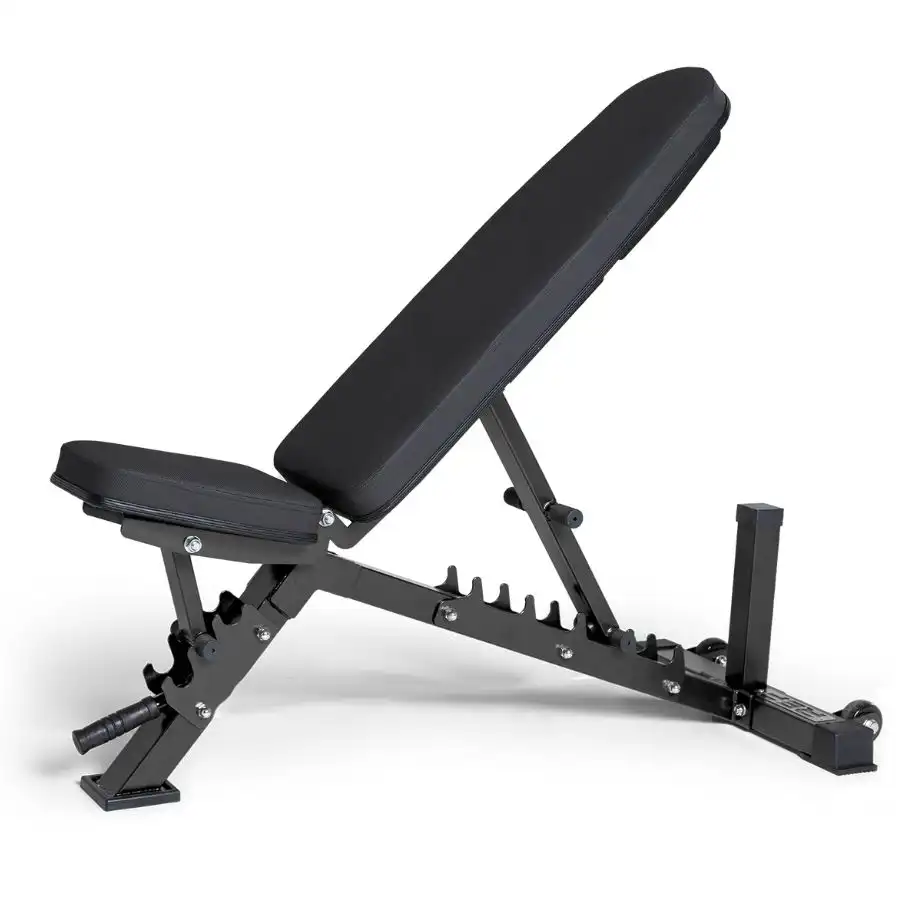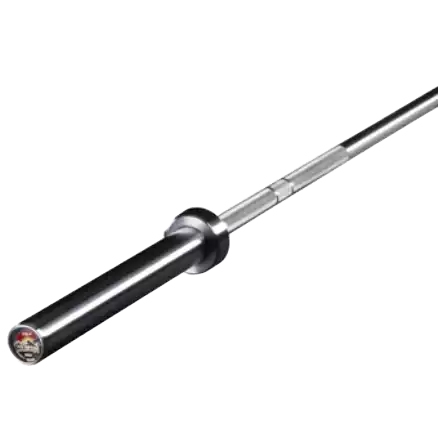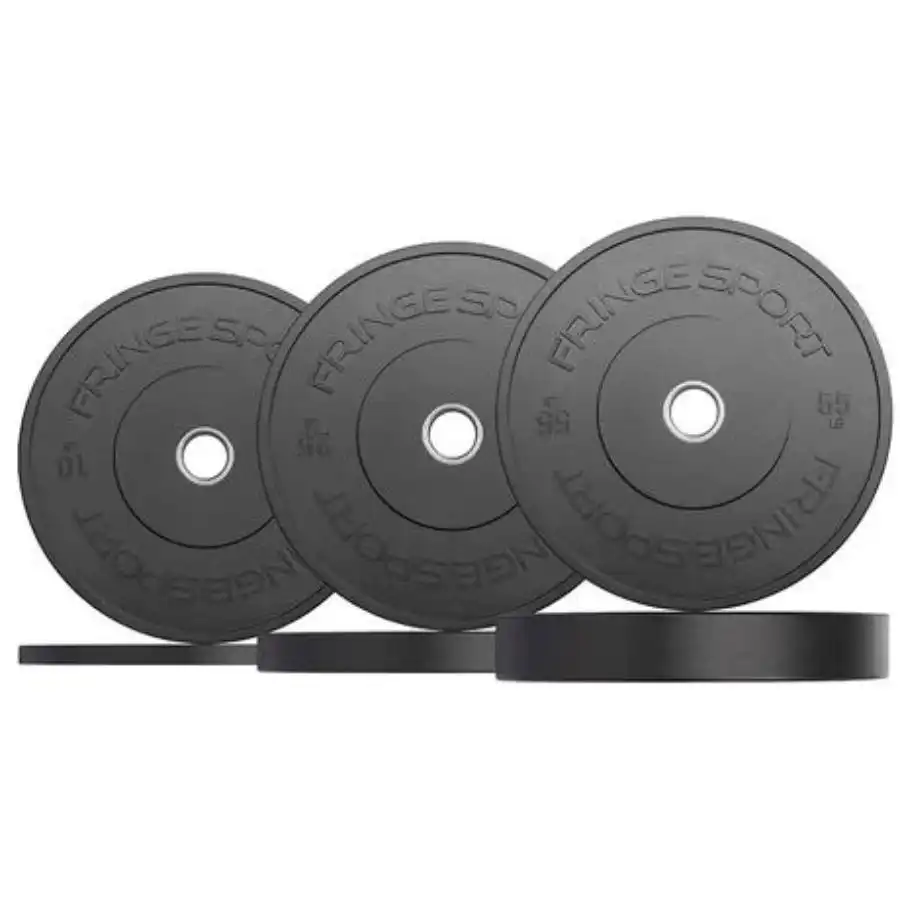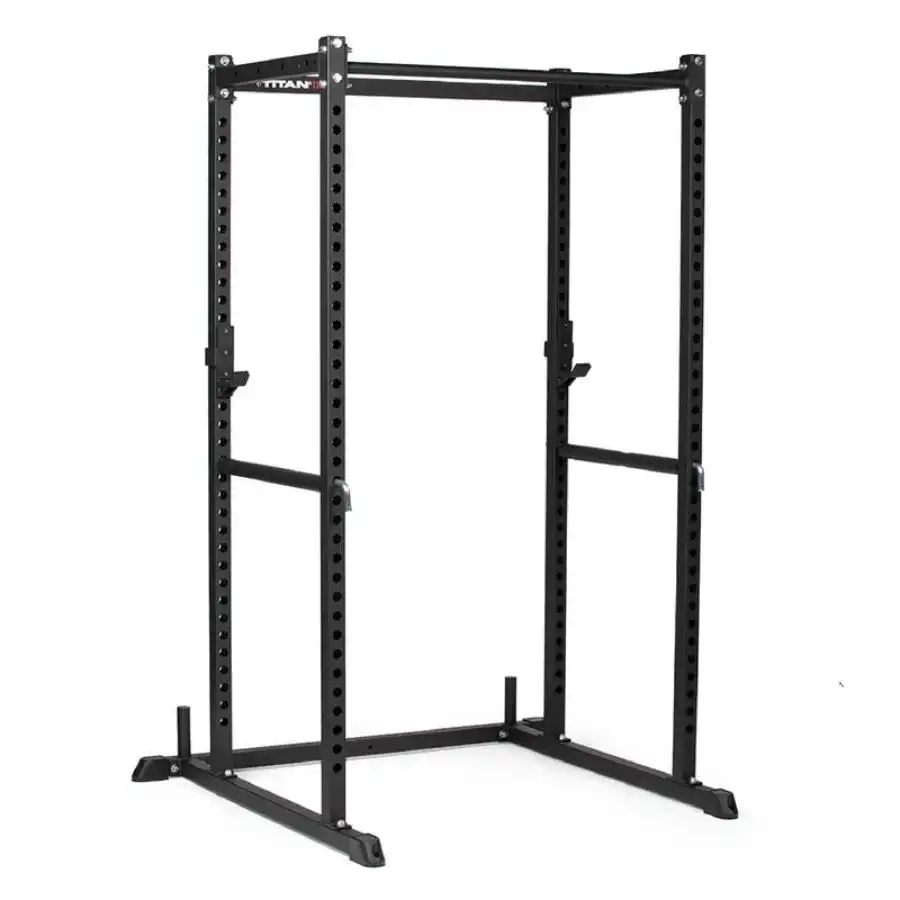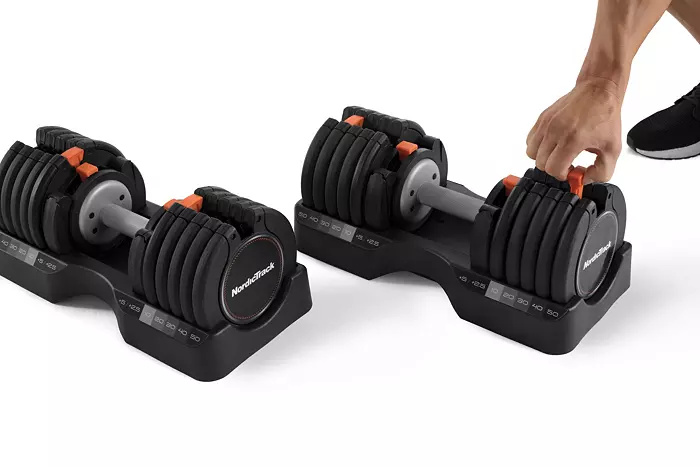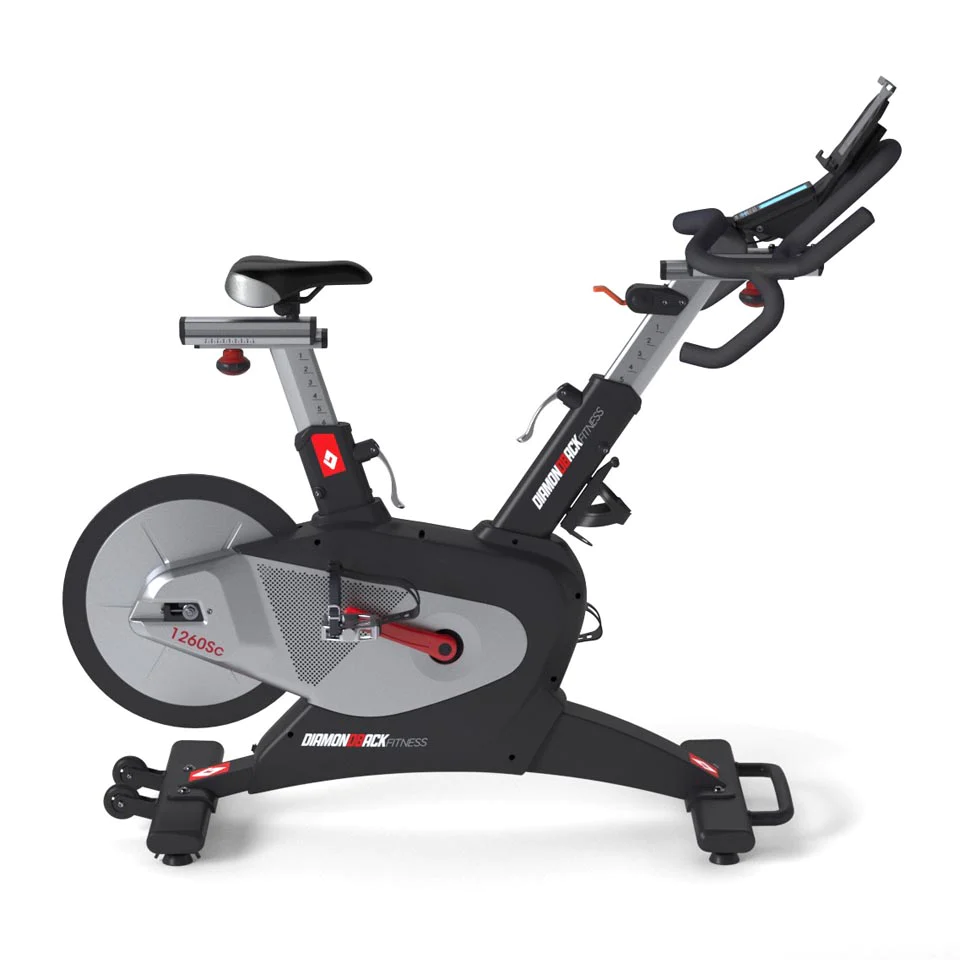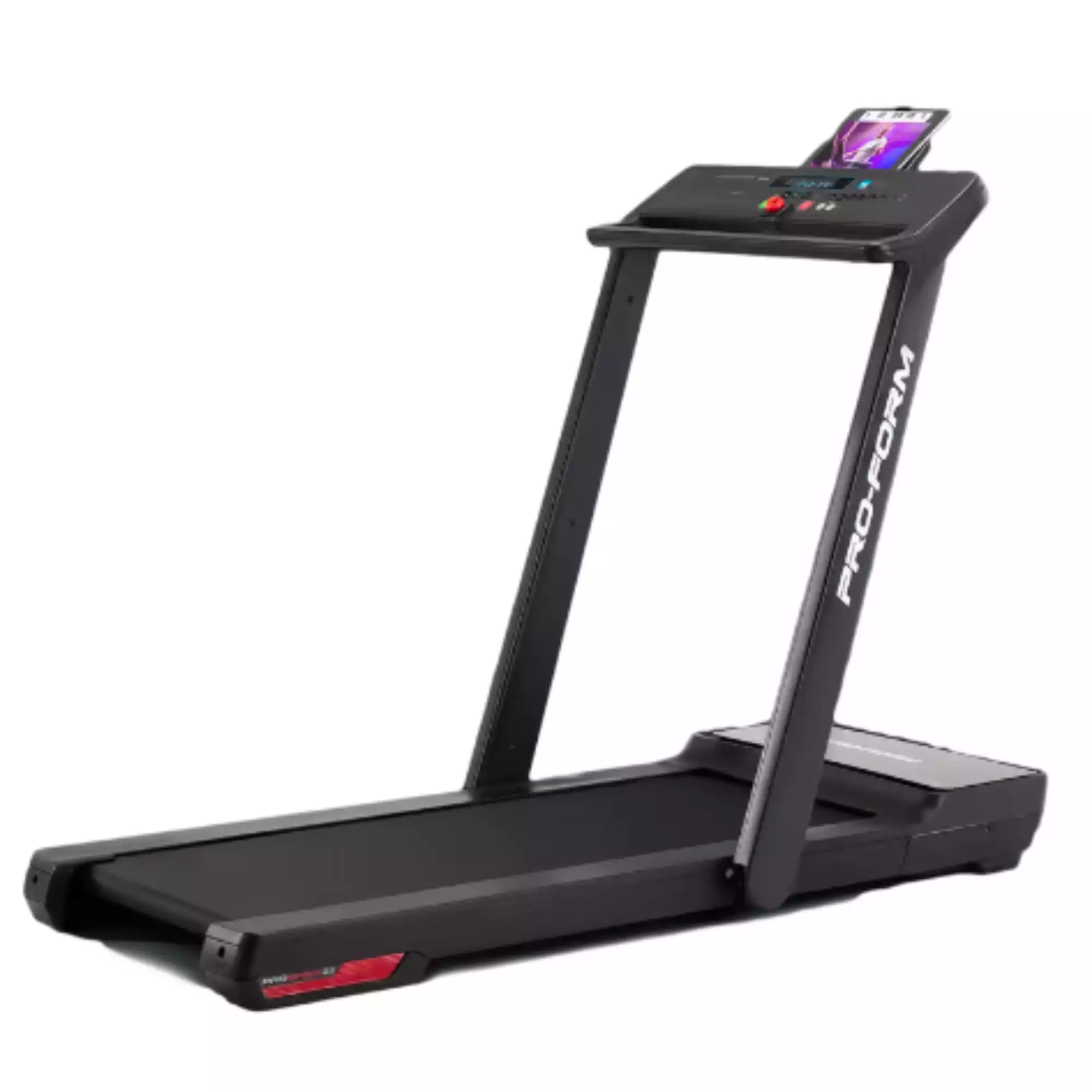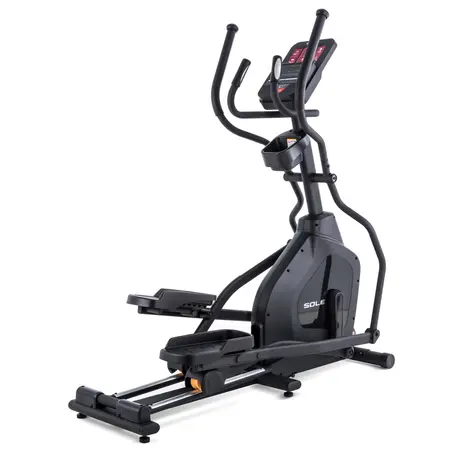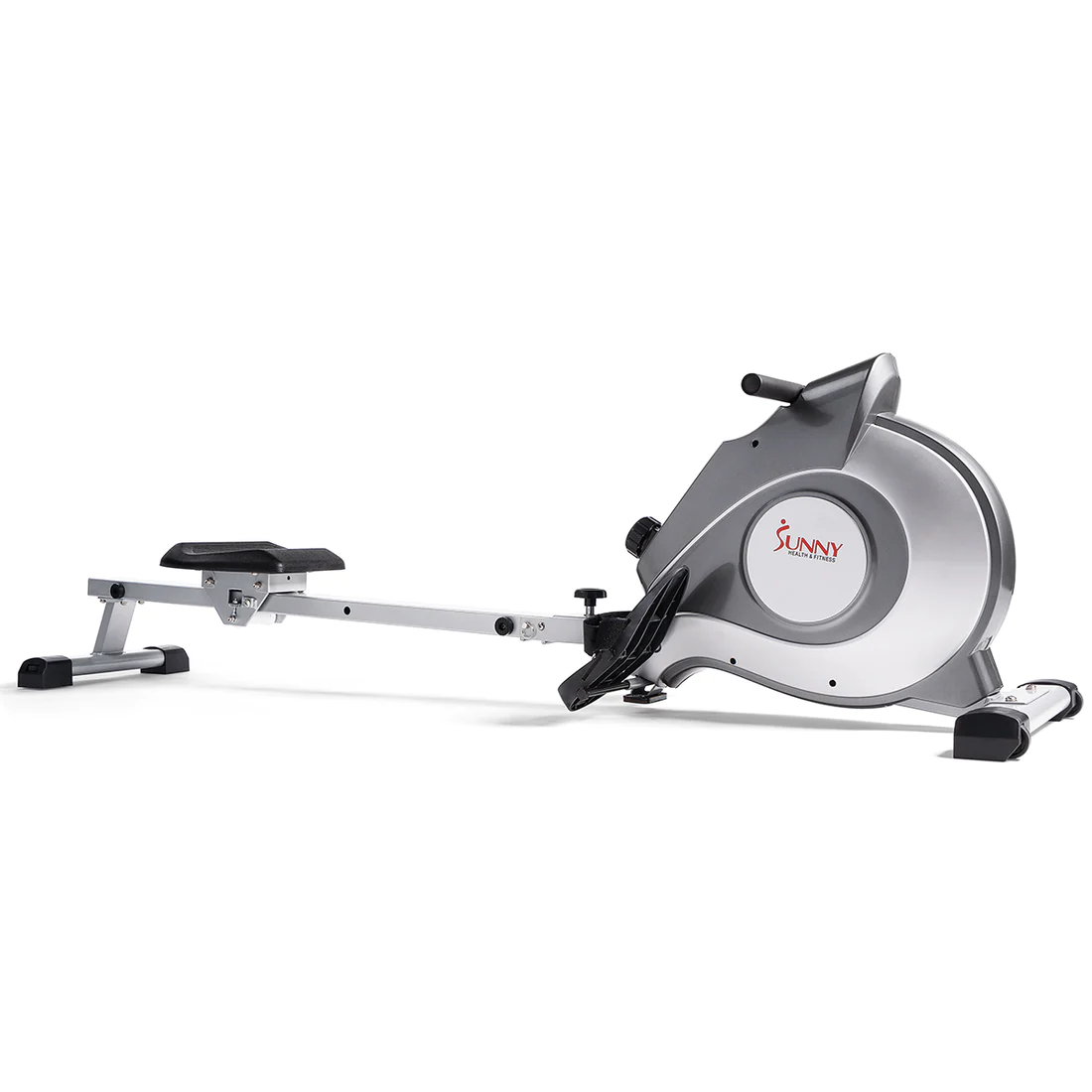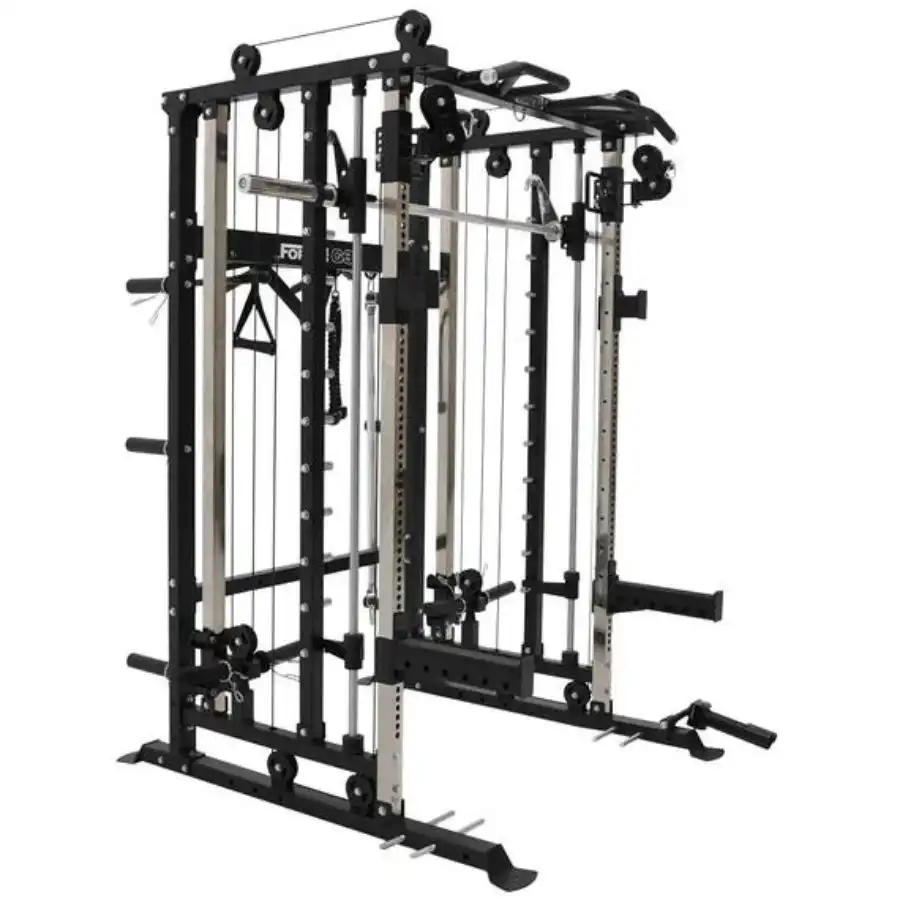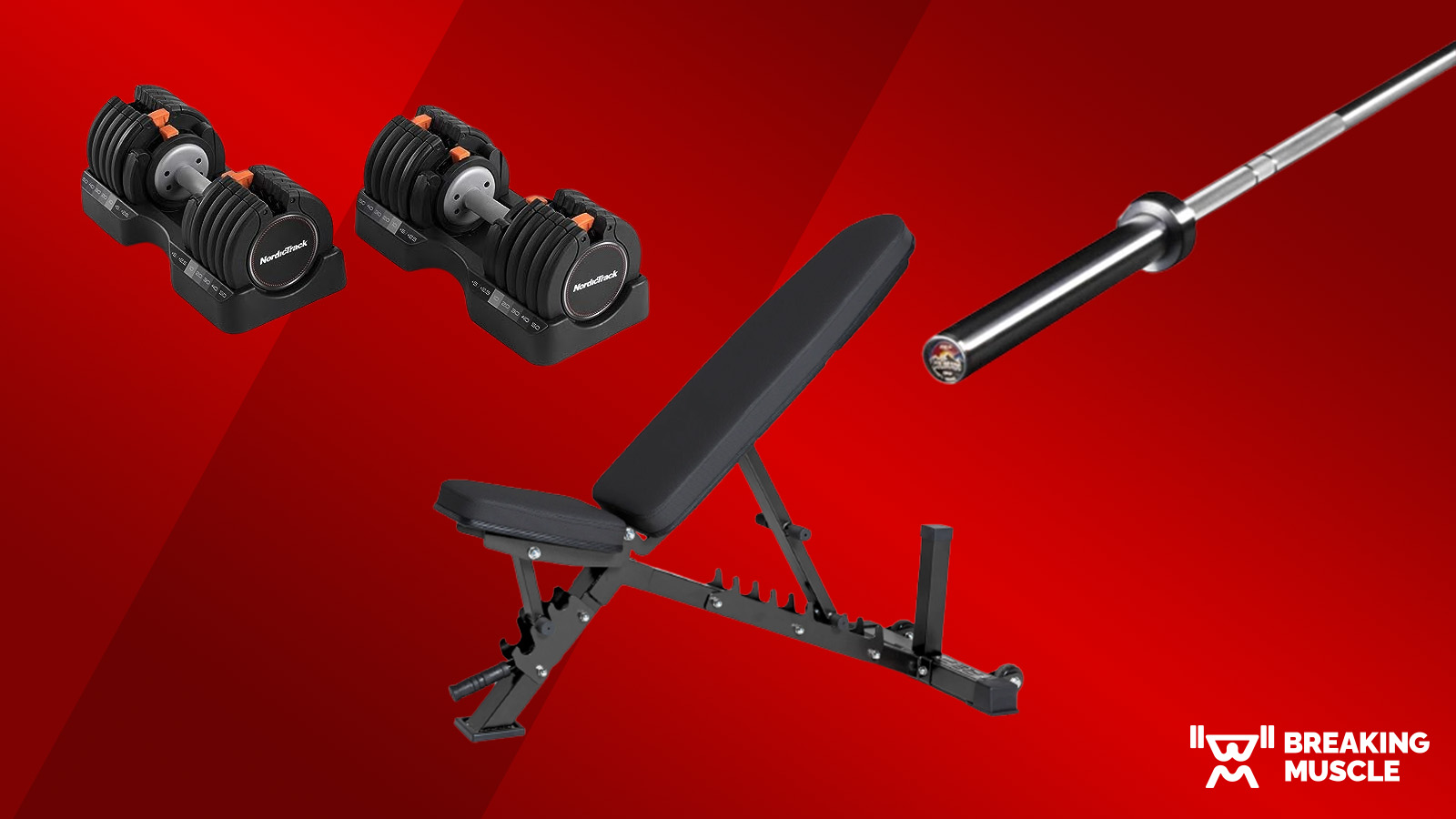
So, you have limited money and want the best budget home gym equipment? Sorting through which products are worth it — and which ones are just disappointments waiting to happen — is no simple task. Lucky for you, we’ve combined decades of training experience and actual product testing to minimize the risk and maximize the payoff for you.
Benches, barbells, dumbbells, cardio machines, all-in-one trainers — this roundup hits every style of training. If you’re on the hunt for equipment that delivers big functionality without a big price tag, meet your one-stop roadmap to the home gym of your dreams.
How We Chose the Best Budget Home Gym Equipment
We’ve done the homework, and the home workouts, to ensure our recommendations are the best. Breaking Muscle’s knowledgeable team of product experts includes certified strength and conditioning coaches, CrossFitters, certified personal trainers, and diehard fitness enthusiasts.
We even have a dedicated testing facility in Springfield, MO, where we put cardio and strength training equipment through rigorous testing to determine which items are worth your hard-earned dollars. Several of our Breaking Muscle team members own the products below in their home gyms, so we’ve included their feedback. I’ve also been a fitness writer and editor for over three years, during which time I’ve screened hundreds of home gyms and CrossFit boxes and constructed my own complete home gym that uses a number of these products.
To ensure our home gym equipment picks stay within a reasonable price range, we set a limit of $2,000, but most items on this list came in far lower.
Our Top Picks for the Best Budget Home Gym Equipment
Best Budget Weight Bench: REP Fitness AB-3100
REP Fitness AB-3100
4.4
- Dimensions: 50.5″ L x 23″ L x 16.75″ H
- Bench weight: 70 pounds
- Back pad positions: Six angles
- Weight capacity: 700 pounds
Pros
- Highly versatile flat and incline bench
- Stable design & sturdy 700-pound capacity
- Easy to move, despite weighing 70 pounds
- Excellent vinyl upholstery bench pad
- Available in multiple colors
Cons
- 1.7-inch gap between seat and back pad
- No decline angle
I’ve owned this bench from REP Fitness for 2.5 years, and love how it hits a sweet spot of versatility, ease of use, and straight-up toughness. The AB-3100 has held up to my regular use, the padding hasn’t ripped or compressed, and the frame shows no rusting.
For me, the most remarkable feature of this bench is its versatility. The three seat angles and six back pad positions unlock more exercises than any flat bench can offer. The ladder-style adjustment system makes changing the angle easy on either pad. Whether your workout calls for incline bench presses, chest-supported rows, shoulder presses, or arm training, the quick customization of an adjustable bench makes it a serious upgrade for any home gym.
Despite the bench’s 70-pound weight, the handle and wheels make it easy to move around. I’ve tried a beefier bench from REP (the AB-5200) and noticed it was heavy and hard to move. The AB-3100 isn’t difficult to move; I just grab the handle at the front of the bench and stand it up, then wheel it wherever I need it. If portability is important to you, I’d recommend the AB-3100 over REP’s larger adjustable benches.
Although it’s easy to move, it’s also quite sturdy, and I’ve never felt unstable or unsupported on this bench. Part of that likely is due to the three-post design, where the posts have rubber grips on the bottoms for added stability. I appreciate this design because I can easily tuck my feet back on bench presses. Other benches I’ve tried have wide bases that prevent me from doing this.
The covering on the bench pad is also quite grippy, and I rarely slip whether I’m wearing a T-shirt or tank top. Finally, its 700-pound capacity gives me peace of mind when training solo.
The main drawback most commenters notice about the AB-3100 is the noticeable 1.7-inch gap between the seat and back pads. Some find the gap an eyesore; others experience low back discomfort because that area isn’t supported. Personally, I don’t have any issues with it.
I’m tall and have a long body, but I can position myself so that I’m not hitting the gap when the bench is flat — the same applies when the back pad is inclined. I’ve even heard of some lifters reversing the bench by using the seat as a headrest with your neck in the gap. That may sound strange, but your gym, your rules.
It’s worth noting that this REP bench has no decline angle — only flat and six incline positions. If you love to decline bench press or have an obsession with lower ab exercises, you might long for this feature. But I haven’t missed it, especially since the bench doesn’t come with leg rollers — a must-have for decline exercises to stop you from sliding off the bench.
RELATED: Best Weight Benches for Beginners, Small Spaces, With Racks, and More
Best Budget Barbell: REP Fitness Colorado Bar
Pros
- Excellent multi-purpose build
- Mixed-use design saves space and money
- Extra-strong 1,500-pound capacity
- Available in multiple Cerakote colors
- Lifetime warranty (conditions apply)
Cons
- Lacks a center knurl
- Higher priced for a budget bar
This popular barbell blends features of powerlifting bars and Olympic weightlifting bars into a single all-purpose lifting powerhouse.
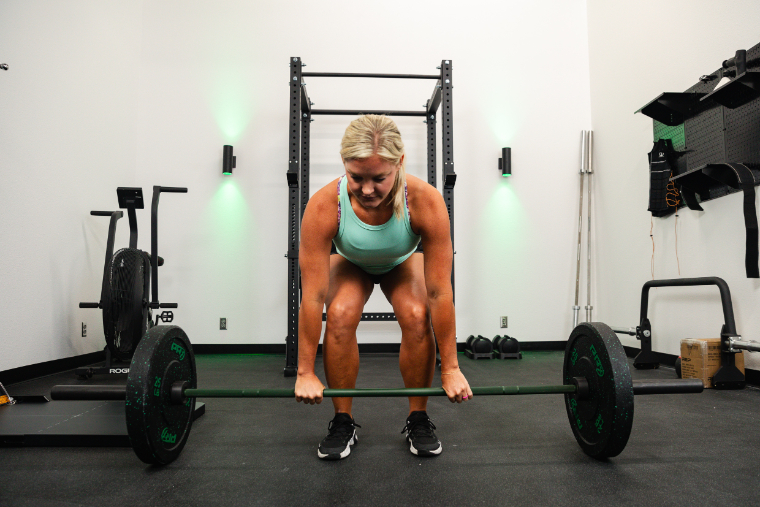
Our product testers tried the Colorado bar and reported that it was packaged well and arrived at the facility without damage. They instantly appreciated the dual knurl marks and said that the medium volcano knurling felt good on their hands: somewhat aggressive, but not so much that it would tear their hands during a high-rep workout. The composite bushings rotated smoothly, and they were surprised by how quiet they were.
Like a number of all-purpose bars on the market right now, the Colorado bar comes in two finish options: hard chrome with hard chrome collars, or Cerakote with Rep’s proprietary black “Duracoat” collars. Both options are highly corrosion-resistant, but the Cerakote version comes brings a couple of perks. A big one: the Duracoat collars harden the steel rather than simply coating or bonding with it, so they won’t flake off over time.
The option of getting it with a Cerakote finish also gives you multiple color options and rust resistance — provided you maintain it. This usually involves wiping it down with gentle, alcohol-free dish soap and water and scrubbing off any chalk residue every couple of weeks (depending on how often you use it and how much of a chalk hog you are).
Our Breaking Muscle team members were particularly impressed with the bar’s 1,500-pound capacity (not that anyone was in danger of reaching it). They noticed that it’s even got a respectable F2 rating according to Rogue’s F-Rating scale, which indicates it would last decades even when getting regularly dropped during grueling high-rep CrossFit workouts.
If your training includes heavy back squats, you might be disappointed about the lack of a center knurl on this bar. For Olympic lifts or power cleans, this is a plus, since the knurling won’t scratch your throat or chest. But a strip of knurling in the middle of a barbell is helpful on low-bar back squats because the bar can more easily shift around without one.
However, if you’re moving seriously heavy weights in the first place, a dedicated deadlift or power bar is probably already on your wishlist (or in your gym already). The great thing about a mixed-use bar like this one is that it’s good enough at most lifts, for most people. Instead of buying a powerlifting bar and an Olympic weightlifting bar, you can save space and money by investing in a high-quality multi-purpose bar like the Colorado Bar that will meet the demands of whatever training style you enjoy.
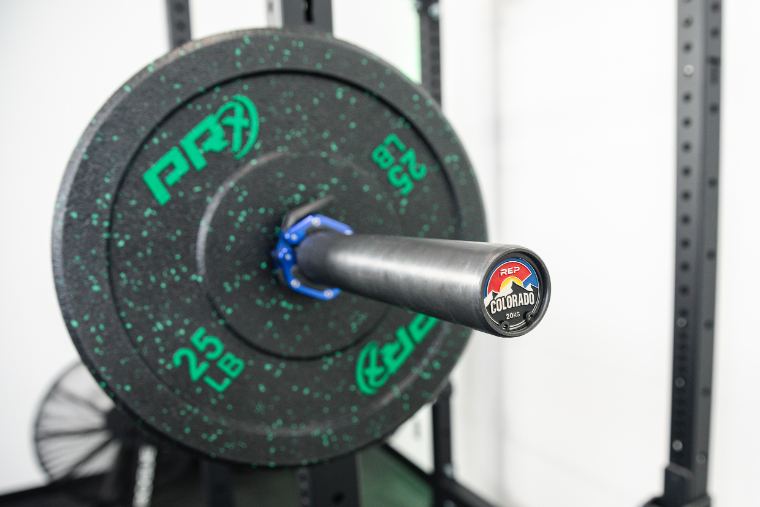
At the time of writing, the REP Colorado Bar retails for $319.99 to $329.99, depending on whether you get the Cerakote or hard chrome finish. These prices put it on the higher end for a budget barbell. In our best budget barbells round-up article, the nine bars that made our list ranged from roughly $85 to $330, with a couple of mixed-use bars priced at $150 or less.
Sure, you could save yourself a couple of hundred bucks and go cheap if you’re only an occasional barbell user. But if you’re looking for a more durable, versatile bar to anchor your home gym, the REP Colorado Bar should last a lifetime.
Best Budget Weight Plates: Fringe Sport Milspec Bumper Plates
Pros
- Made from virgin (new) rubber
- Military-approved quality
- Comprehensive weight range options
Cons
- 90-day or one-year warranty only
- Return shipping not covered
The Fringe Sport MilSpec bumpers offer the premium look and feel of elite international brands, but at a far more home gym-friendly price point from a US-based brand.
One big plus that our testers loved is that these bumpers are made using virgin rubber. Virgin rubber offers better durability than the cheaper, recycled rubber crumb that tends to be used to make bumper plates. It also results in a bumper plate with minimal bounce. And finally, the virgin rubber bumpers received by our product tester had no odor, whereas many recycled rubber bumpers can be quite smelly.
The high quality of these MilSpec bumper plates has permitted them to meet the Army Combat Fitness Test (APFT). They’re also approved to be used outdoors, a serious benefit for high-volume gyms like those on military bases where indoor gym space can be limited. Fringe even states that the 10-pound bumpers can be dropped, which is a distinctive advantage over other companies who make their 10s too thin, and dropping causes them to bend and warp like a taco shell.
For example, the 10-pound bumpers from Fringe are 1.05 inches wide, which is significantly thicker than the 10-pound Rogue Echo Bumper Plates that are only 0.83 inches wide. Over thousands of repetitions, that extra 0.2-inch width can be the difference on whether a bumper plate endures or fails.
Fringe offers their bumper pairs in a full weight range: 10, 15, 25, 35, 45, and 55 pounds. Few companies provide 15-pound and 55-pound sizes, and Fringe’s more extensive selection creates flexibility in crafting a custom set to suit your training needs. For example, if starting your warm-ups with 10-pound bumpers feels too light, you can opt for a 15-pound pair instead. Additionally, you can select 55-pound pairs instead of 45s if you compete in powerlifting because they’re equivalent to 25-kilogram plates.
Just remember that the 55-pound plates are 3.2 inches wide, so you’ll only be able to fit five of them per side with little to no room for a barbell collar — capping you at a total of 595 pounds if you’re using a typical 45-pound Olympic barbell.
However, it’s worth noting that the warranty for these bumper plates is limited. The 10s and 15s have a 90-day guarantee, with the remaining plates covered under a one-year warranty. Considering the high quality of these bumpers, it’s unlikely you’ll need to return them. But if you do, you’ll be on the hook for return shipping charges.
Best Budget Squat Rack: Titan T-2 Power Rack
Pros
- Excellent value for the price
- Sturdy construction
- Easy to assemble
Cons
- Not ideal for tall people
- Assembly instructions lack detail
The T-2 power rack by Titan Fitness is an excellent budget option for anyone looking for a sturdy, compact squat rack with a few important bonuses thrown in.
At the time of writing, the price of the T-2 is $419.99 for the 83-inch tall version and $399.99 for the 71-inch. To perform barbell lifts safely at an all-in cost of roughly $400 is reasonable on its own. But the rack’s complementary pieces are what make it a real bargain, and a truly versatile lifting base.
For example, the base model T-2 comes with plate horns, so your weight plates won’t get strewn across your floor. It also includes pin-pipe safeties to ensure you stay safe while lifting solo, plus a set of reinforced J-hooks and a pull-up bar. Seriously, that’s all just with the base model! Many companies charge extra for these attachments or include them but at a total cost that is significantly higher than Titan’s.
Despite being budget-friendly, this rack has an impressive construction. It features heavy-duty 2-inch x 2-inch uprights built using 14-gauge steel. And with an 850-pound rackable capacity, it’s enough for everyone but the most elite-level lifters.
Personally, I love that the Titan rack has a flat-foot design. Many power racks only have the bottom of each post on the floor, but the T-2 features steel tubing along the entire base directly against the floor. This makes the rack significantly more stable, to the point that you don’t necessarily need to bolt it down. However, it includes bolt holes in the feet to secure it to your floor if you want extra stability with heavier weights.
While the T-2 comes with an impressive set of attachments, Titan also offers more advanced accessories you can buy separately later when you have the funds and/or interest. From additional j-hook and safety options to specialized add-ons like monolift arms and a leg press attachment, you can expand your power rack into a highly versatile training station at an affordable cost.
The main downside to the Titan T-2 is its height. Even the tallest option is only 83 inches, which puts a noticeable constraint on how high up you can mount your J-hooks. Since the highest tubing hole is about eight inches below the top of the rack, you’ll only be able to mount a bar as high as approximately 75 inches, or 6 feet, 3 inches. If you’re a very tall lifter, you might find this an annoyance for certain lifts like back squats or military presses, but for most people, it’s more than adequate.
One other downside: assembling the Titan T-2 can be a challenging project that requires a team effort. The assembly manual appears to be little more than exploded diagrams of somewhat confusing part numbers and arrows. Despite its simplicity, a second person is most likely required to hold the uprights as you bolt them to the flat foot components.
RELATED: Best Squat Racks for Small Spaces, Beginners, and More
Best Budget Dumbbells: NordicTrack Select-a-Weight Adjustable Dumbbells
Pros
- Replaces 30 dumbbells
- Convenient storage trays included
- Easy-to-use weight selector
Cons
- Lacks some weight increments: 17.5, 27.5, 37.5, 47.5 pounds
- Short 90-day warranty period
The NordicTrack Select-a-Weight Adjustable Dumbbells are an excellent choice if you’re looking for a versatile and space-saving solution. With these adjustable dumbbells, you can say goodbye to a cluttered home gym and hello to a more streamlined workout experience.
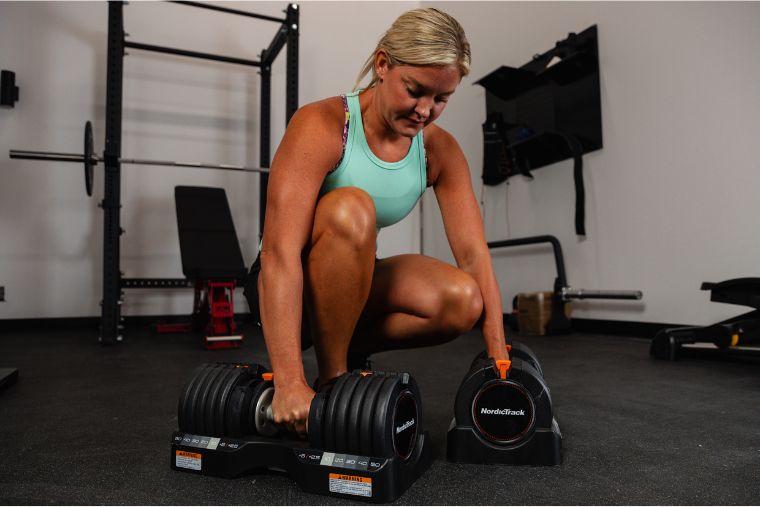
The standout feature of these dumbbells is their 10 to 55-pound range, which is adjustable in both 2.5 and 5-pound increments. This means they can effectively replace 30 individual dumbbells, saving you hundreds if not thousands of dollars in purchase price and shipping, as well as plenty of floor and shelf space.
The convenient storage trays with the dumbbells make keeping your workout area tidy and organized easy. Some brands sell their trays separately, but NordicTrack includes theirs by default, so you won’t be tripping over loose weights or searching for where you left them. Simply place the dumbbells back in their designated slots after each set, and you’ll never find yourself wondering where they are.
Another great feature is the easy-to-use weight selector. Thanks to the intuitive tab system, changing the weight on these adjustable dumbbells is a breeze. Simply pinch the bright tab in the center of the plate channel, slide it to the weight increment you need, and release. Within seconds, you can get back to your workout. Need an in-between weight, like 22.5 pounds? Just slide the tab near the handle to add the smaller 2.5-pound microplate.
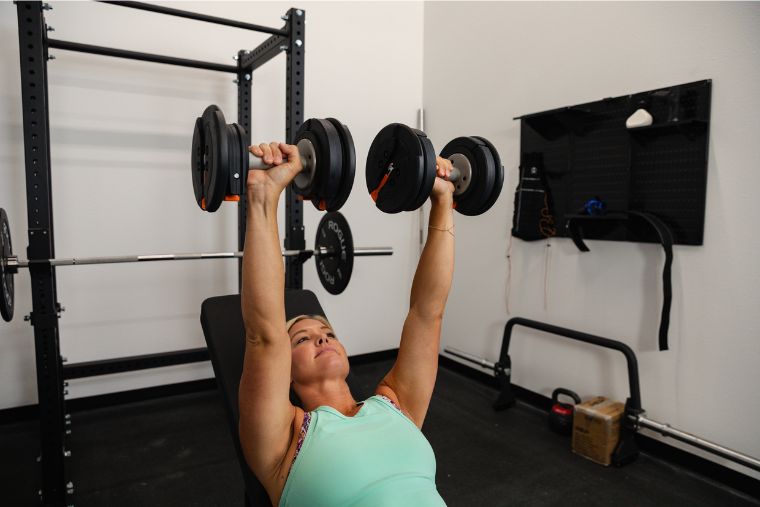
It’s worth noting that these dumbbells lack certain weight increments: specifically 17.5, 27.5, 37.5, and 47.5 pounds. This is because the weight selector tab on the handle allows you to add 2.5 or 5 pounds, but not both simultaneously. If these specific weight increments are crucial to your training routine for some reason, you may want to consider an alternative.
Further, the 90-day warranty period might be shorter than expected for some users, and it’s crucial to know that the 90-day guarantee only covers manufacturing defects. I was expecting a much longer warranty on these, and knowing that they aren’t covered if you accidentally drop (and break) them within the first 90 days would definitely prevent me from tossing them on the ground like a gym bro.
Best Budget Exercise Bike: Diamondback Fitness 1260sc
Pros
- Commercial-gym quality bike
- Console highly compatible with popular tech
- Highly customizable and ergonomic
Cons
- More expensive than alternatives
- Basic console; no programs
The Diamondback 1260sc is an excellent choice for home gym enthusiasts looking for a sturdy and durable bike for home use. Our testers found that it brought a commercial-gym quality build that was ready to withstand even the most intense home gym workouts.
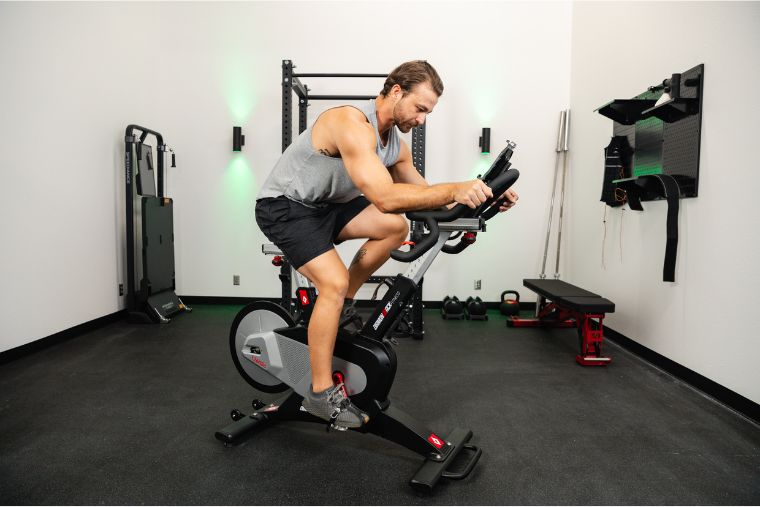
It’s worth noting that this bike is noticeably more expensive than some of the alternatives. At the time of writing, the 1260sc was on sale for $999.99, but it’s regularly priced at $1,538.45. You can find other decent-quality bikes available for less than $1,000, but the features and build quality of the Diamondback 1260sc make it a great value.
During their test drive, our product testers noticed that the bike felt extremely smooth due to its reinforced pedals and cranks. The resistance click lever made it easy to apply magnetic resistance to ramp up the intensity.
But the little things are what really made this bike stand out: the included water bottle holder, the multiple handlebar grips, and the rear-wheel drive that helps to keep sweat from dripping down the wheel and causing corrosion.
Another big plus of the Diamondback 1260sc is its highly versatile digital console. Rather than sticking to proprietary programming, this bike plays nicely with a wide range of apps and any wearable technology that is ANT+ compatible, such as Garmin and Wahoo devices. The BLE FTMS connectivity easily pairs with Zwift, Rouvy, Myzone, and SPIVI apps. There’s even an integrated tablet holder, so you can stream workout classes while using your bike.
No apps? No problem. The console still shows you all the fundamental data to track your workouts and effort consistently, including watts, time, distance, RPM, and heart rate. Although it shows these basics, the console is still barebones compared to other bikes on the market. It doesn’t offer any programs, so you must be your own trainer, look up free fitness classes online, or join a subscription service.
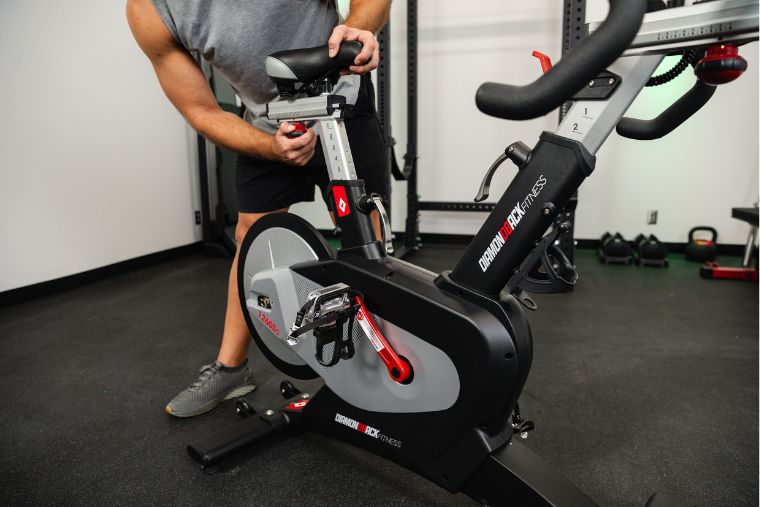
Despite being a more budget-friendly model, this bike has the customizability of a high-end spin bike. It features a v-shaped frame with highly adjustable handlebars, so you can fine-tune the height and fore/aft to get an ideal fit. You can raise or lower the seat to fit your leg length, and the fore/aft is also adjustable to ensure you’re comfortable during long rides. You can even choose between classic or SPD clipless pedals by flipping the pedal around to get the exact riding experience you crave.
Best Budget Treadmill: ProForm City L6
ProForm City L6
3.0
- Overall dimensions: 70.25” L x 29” W x 44.5” H
- Weight: 125 pounds
- Weight capacity: 250 pounds
- Display: LED display for workout stats
Pros
- Compact and foldable to save space
- Budget-friendly price
- Easy to use and assemble
- Connects to iFIT
Cons
- 1.6 CHP motor lacks power
- Smaller deck size feels cramped
The ProForm City L6 is an easy-to-use and compact treadmill for people who like walking or light jogging and using iFit’s wide range of workouts and programs.
The price of this foldable treadmill is part of what makes it so attractive. At the time of publication, it retails for $699.99. This is definitely in the budget range for a treadmill, as most units with similar features cost at least $1,000.
Our Breaking Muscle testers found the assembly process basic and straightforward, as the ProForm City L6 has fewer parts than a typical treadmill. It’s doable as a one-person job but would be easier with two.
Our product testers were also impressed with how compact this treadmill is. It has a foldable frame, which makes it ideal for small workout spaces. For instance, the frame folds down small enough that our product tester could fit it under a bed. Despite its 125-pound weight, the front wheels make it surprisingly easy to move — a handy benefit for smaller users.
One downside: our Breaking Muscle team members found that the 1.6 CHP motor wasn’t fully up to the challenge of intense training. One product tester is nowhere near the 250-pound limit, and when they brought it up to its 8 MPH max speed, it shook a lot as they ran — which wasn’t even a full-out sprint. Serious runners or sprinters doing HIIT treadmill workouts should consider a different treadmill with a stronger motor, but for lower-intensity running and jogging, the L6 should be more than adequate.
Additionally, you might feel cramped on this treadmill due to its deck size if you’re on the tall side. Our product tester is 5-foot-3 and it worked well for them, but if you’re much taller than about 5-foot-10, its 17.5-inch wide and 45-inch long deck might feel too small to run comfortably.
Best Budget Elliptical: Sole E20
Sole E20
3.5
- Overall dimensions: 72” L x 24” W; 60” H
- Weight: 325 pounds
- Weight capacity: 300 pounds
- Display: 5.5-inch LED
Pros
- User-friendly build
- Great value
- Solid warranty
Cons
- Large bulky footprint
- Hard to move
A well-made elliptical from a reputable brand can often run you $1,000 to $2,000. The Sole Fitness E20 provides a stable, low-impact ride and a respectable warranty for far, far less, making it an easy choice for a budget elliptical. At the time of writing, it’s on sale for $599.99, and can usually be found new for no more than $700.
The E20’s console is simple and easy to use. It features built-in pulse grips and is compatible with wireless heart rate chest straps, so you can know how hard you work without missing a beat. Additionally, there’s a handy-dandy media shelf on the console. This means you can store your tablet or smartphone on the ledge to watch TV or movies without worrying about your device falling off and getting damaged. There’s even a water bottle holder, which might seem like a mandatory accessory for an elliptical, but is missing from a surprising number of budget-friendly units.
Sole Fitness is known for its stellar warranties. Despite this being a budget model, the E20 still has impressive coverage: unlimited warranty on frame, 3-year warranty on electronics, 1-year warranty on parts, and 1-year labor warranty. If you ever need warranty work, their service center is just a call away, with all their technicians based in the US.
One downside: the E20 can’t fold. This means you’ll need an entire 70” x 64” area to store the machine permanently, plus additional room around the unit to access it without tripping over your other fitness equipment.
Another downside to the E20 (and most ellipticals): it’s quite heavy at 175 pounds. The E20 has two transport wheels, but you’ll have to lift the machine from the back for it to kick in. This means you’ll have to use some serious elbow grease if you ever have to move it.
Best Budget Rower: Sunny Health Magnetic Rowing Machine
Pros
- Reasonably priced rowing machine
- Eight quiet magnetic resistance levels
- Foldable frame to save space
Cons
- Monitor lacks total distance metric
- No built-in programs
Sunny Health’s magnetic rower features a range of resistance that make this cardio machine suitable for beginner and intermediate rowers — and finding your sweet spot is as simple as turning a knob. But even better, the resistance is applied magnetically, which makes it quiet compared to air-powered rowers.
Although not very wide, rowers are notorious for taking up a large amount of floor space due to their length — they can be up to 95 inches long. The Sunny Health Rower folds up to just 43.3 inches by 18.9 inches, saving a lot of space in your living room or home gym. You can fold it up by simply removing one of the cotter pins on the rails, so you’re unlikely to find yourself leaving it unfolded.
The “budget” side of this rower feels more apparent when using the monitor, which claims to track time, total distance, and calories. But many commenters feel it only does one of those features (time) with any dependability or accuracy. More than a few users have noted that they use it only as a timer. Advanced rowers will definitely notice the lack of a sophisticated monitor.
Similarly, the basic monitor lacks any programs or interactive features. If you’re using your smartphone, this isn’t a big deal. However, I would have appreciated a few simple workout programs to be included.
RELATED: Best Rowing Machines for Beginners, Small Spaces, Seniors, and More
Best Budget All-in-One Home Gym: Force USA G3
Force USA G3
4.0
- Dimensions: 87” H x 78” W x 60.5” D
- Maximum resistance: Up to 772 pounds for Smith machine
- Type: Plate-loaded
- Warranty: Lifetime structural
Pros
- Highly versatile 6-in-1 machine
- Built-in storage for attachments and bars
- 18 additional add-on attachments
Cons
- Costs $1,999.99
- Weight plates sold separately
- Barbell for power rack sold separately
The Force USA G3 is an affordable all-in-one trainer that combines six machines: a power rack, Smith machine, and functional trainer, along with a chin-up station, core trainer, and suspension trainer station. The amount of versatility you get in a footprint that’s basically a squat-rack-and-half is pretty incredible.
What I especially like about the G3 is that only the essential attachments are included, while many extras are optional. Keeping extra attachments optional keeps the overall price as low as possible while allowing you to purchase only the attachments you’d actually use.
But if you want to expand this unit’s capabilities, you have tons of options. The 18 attachments they offer for the G3 even include popular new-school training tools like lever arms. These allow you to simulate dozens of machine-like exercises at an affordable price. Since they mount directly to the guide rod uprights, you can fine-tune their position for any exercise.
Despite its incredible versatility, the G3 isn’t cheap. It retails for $1,999.99, which makes it the most expensive home gym equipment piece on this list. This is a hefty price tag for a budget item and might require some time for you to save up if you want to pay for it upfront. At the time of writing, Force USA does offer a financing option through Affirm.
Another downside to this unit is that you’ll need your own weight plates. Unlike the selectorized G20, the G3 is a plate-loaded all-in-one-trainer, meaning it requires plates to provide resistance.
While the amount of plates you’ll need will vary based on your current strength level (or aspirations), don’t forget that if you’re using the Smith machine or functional trainer components, the cable system has a 2:1 pulley ratio — so 100 pounds will only feel like 50 pounds. The small but crucial detail means you must provide double the weight to feel your desired resistance. If you love heavy weights, this is worth factoring into your budget.
Similar to the weight plates, you’ll also need your own barbell (may I recommend the REP Colorado Bar?) if you want to use the power rack for traditional barbell exercises.
What Are the Benefits of Having a Home Gym?
- Versatility: You can exercise whenever you want because a home gym is open 24/7. There’s no need to worry about gym hours or waiting for equipment to become available.
- Privacy: You can work out in the comfort of your own home without feeling self-conscious or judged by others. Plus, there are no restrictive clothing rules to adhere to.
- Convenience: You don’t have to travel to a gym, saving you time and money on transportation.
- Customization: You can choose the equipment that best suits your specific needs, goals, and preferences.
- Hygiene: When you’re the only person in your gym, you don’t need to worry about messes or germs from public users.
- Motivation: A home gym can help you stay motivated and committed to your fitness goals.
- Cost–effective: A home gym can end up being more cost-effective than a gym membership over time.
- Family time: You can work out with your family members, making it a fun and healthy activity for everyone.
What Home Gym Equipment Should You Start Out With?
The number of home gym items that sit around for years without use could make anyone cry. But not all of these neglected tools are bad workout equipment. Plenty of them are just a bad fit.
And despite the fitness tech or gym equipment trending right now, there are only three things that you actually need to exercise at home:
- Equipment to apply resistance to your muscles
- Equipment to challenge your cardiovascular system
- Space for the equipment
Pretty simple, isn’t it? So, the home gym equipment that you start with should be equipment that you’ll actually use.
And the easiest way to figure out what you’ll use is to ask yourself, “How do I like to train?”
Enjoy running? Get a treadmill. Hate running but love cycling? Exercise bike it is. Have a passion for rowing? A rowing machine will be your new best friend.
Apply this same question to resistance training, and you’ll figure out whether you should invest in free weights, resistance bands, bodyweight training equipment, or machines.
What To Consider When Buying Home Gym Equipment
Price
Home gym equipment can vary widely in price, depending on the product’s quality, features, and brand. Set a realistic budget for your home gym and look for equipment that offers the best value for your money.
When comparing prices, factor in the cost of maintenance, warranty, and delivery. This is especially important for oversized items like treadmills and elliptical machines.
Training Style
Home gym equipment can be classified into two main categories: cardio and resistance training. Cardio equipment like treadmills, bikes, and rowers are designed to improve cardiovascular fitness. Resistance training equipment, such as dumbbells, benches, and resistance bands are designed to build muscle and increase strength.
The most important thing you should do is choose equipment that matches your training style and preferences. This will ensure you actually use the equipment instead of it getting used for a couple of months and then collecting dust.
Goals
Home gym equipment can help you achieve different fitness goals, such as weight loss, muscle gain, endurance, strength, or flexibility. You should have a clear idea of what you want to accomplish with your home gym equipment and only choose items that will help you reach those specific goals.
For example, you should look for cardio equipment if you’re interested in improving your cardiovascular fitness because it will give you a practical way to train in that manner. If you want to gain muscle, you should look for resistance training equipment that can provide progressive overload and work major muscle groups, like the Force USA G3 all-in-one trainer.
Available Space
Home gym equipment can take up a lot of space in your home, especially if you have multiple pieces of equipment. Before purchasing, measure the available space in your home and choose equipment that can fit comfortably and safely in your designated area. You can also look for equipment that is foldable or compact, which can save you some space when not in use.
You should also consider the equipment’s weight and ensure it won’t exceed the capacity of your floor or walls for wall-mounted items. Just 10 to 15 minutes of planning can save you a ton of headaches (and home repairs).
Final Thoughts
If you want to build a home gym that suits your needs and budget, you don’t have to spend a fortune on fancy equipment. You can get high-quality equipment without breaking the bank as long as you’re intentional and honest about how you like to train and focus on covering the basics instead of opting for luxurious products.
FAQs
A good inexpensive home gym is the Force USA G3. It features six machines combined into a single footprint: a power rack, smith machine, and functional trainer, along with a chin-up bar, core trainer, and suspension trainer station. The exercise versatility you get in a single footprint is incredible despite its larger upfront price.
The best gym setup for a small space needs to be versatile equipment that you’ll actually use. You can get a great full-body workout with nothing more than a bit of floor space to do push-ups and a yoga mat. But if you add in a dumbbell or two, you’ll get far more training options while only taking up an additional foot or two of floor space.
You can buy your own equipment to supply an impressive home gym with as little as $1,000 to $2,000. Going to an average gym will cost roughly $600 per year at minimum. This means that you’ll break even in about 3.3 years or less, and it will be cheaper using your own equipment every day after that — as long as you don’t continue buying more gear.
Two types of inexpensive equipment that you can purchase to exercise at home are resistance bands and a jump rope. Add in a weight training tool like a dumbbell or kettlebell, and you can challenge all of the major muscle groups in the lower body and upper body without breaking the bank.

